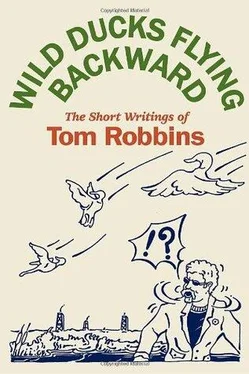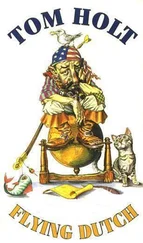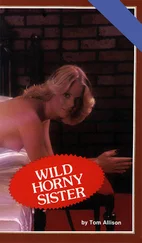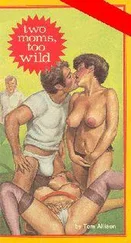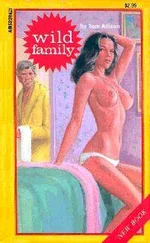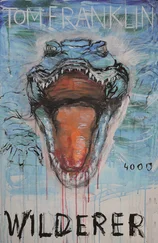you can even housebreak some bunny rabbits.
You can teach some old boys to wipe their boots on a mat,
but love holds on to its bad habits.
Passion hides in the shadows where it’s damp and it’s dark
to sneak out and bite you on the leg.
No, it won’t sit up and beg:
My heart is not a poodle.
My love is wild, hog wild,
it ain’t for a sissy or a child,
it’s sweet but it’s also vile,
don’t mistake it for no poodle.
Real love likes to run free like a fox or a cur,
it ain’t looking for no master,
so don’t be tying no fancy ribbons ’round its neck
or it’s gonna run all the faster.
I like the way you look, baby, I love how you smell
I long to be your very own,
but don’t toss me no old bone;
my heart is not a poodle.
My love is wild, hog wild,
it ain’t for a sissy or a child,
it’s the hot stuff, not the mild,
don’t treat it like a poodle.
(SPOKEN)
It ain’t nobody’s lapdog.
Won’t wear no rhinestone collar.
Don’t even think about calling it “Fifi.”
The meditation mat
is the yogi’s horse:
Git along little yoga,
gotta reach
El Snuffing Out Candle
afore sundown
own
own
own
own.
Between the ace and the trey
between the raise and the fold
between the hat and the wand
down and dirty in Vegas
or up a magician’s silky sleeve,
the red deuce bides its time.
Born under the sign of Gemini
on Groundhog Day in Baden Baden,
bipolar double agent
too wild for just one world:
two hearts beating in one pale breast,
diamonds the color of rubies dangling from the Devil’s lobes,
Euclidean tomatoes,
jigsaw pasties,
Rasputin and his clone
in velvet suits scheming to topple a royal house,
Saint Valentine’s testicles swaying
imperceptibly to the fickle rhythms of chance:
the sagacious player understands
that these are no mere figures of speech.
If some night a pair
of bloodshot eyes
stare unblinking into yours,
remember:
no hand is a winning hand
’til you dare to lay it down,
and He who made the red deuce wild
knows both your secret names.
Jacking the molar free
of its purchase in the bark-blackened gums,
the mission dentist made to toss it
into a pail of slops—
but the shaman seized it,
licked it lovingly clean of his own blood,
used a baby monkey to buff it,
built a wooden cage for it
and set it next to the dream pole
in the center of the village.
At sunrise the next morning
the tooth commenced to sing
in a sweet little Gloria Estefan voice,
awakening the missionary
who, chronically dazed by everything around him
for a hundred miles,
turned to the first page in his stiff hymnal
and tried to join in.
I
If Frankenstein grows tomatoes
And Dracula farms beans,
If the Wolfman plants the croutons
That Kong puts on his greens,
If the Creature From the Black Lagoon
Loves carrots, peas, and hash,
If Godzilla peels the potatoes
Used in the Monster Mash,
If Vego the Giant Cauliflower
Eats people like a fiend,
Then what is keeping you, my son,
From licking your plate clean?
II
The Abominable Snowman
Lives far from any city
Up in the Himalayas
Where snow falls like confetti.
Men climb far to look for him
Their ropes coiled like spaghetti
But though they’ve looked for years and years
They haven’t found him, yeti.
A script treatment for a feature film
Freddie Manhattan is a rock star of moderate magnitude — he has an asteroid talent but a supernova ego. He has just been informed by his manager that he’ll be cutting his new album in N.Y. right after the Christmas holidays (late autumn lies like a frosty leaf upon America). Freddie’s in a snit. N.Y. January is colder than penguin toejam. Okay, okay, L.A., then. No! Freddie wants the Caribbean. Elton John records in the Caribbean, Sting records in the Caribbean, the Caribbean is good enough for Mick Jagger, it ought to be good enough for Freddie Manhattan. Exasperated, the manager says he’ll see what he can do.
In Minneapolis, meanwhile, Howard, a high-school history teacher, is visiting a former colleague, one Newton Beck. A biology teacher, Newton, thirty-one, got one of his students pregnant. Even though he married the girl, he was fired. Young Mrs. Beck gave birth to twin sons, now about six months old. The twins are fraternal (non-identical) and Newton is explaining to Howard the ways in which they differ, one from the other. Heidi Beck seems uninterested in the Beck twins, her husband, or his guest. She is dancing alone to a Freddie Manhattan album.
Freddie, back in N.Y., is watching the weather on TV. “It’s already fuckin’ snowing in Minneapolis,” he observes sourly.
As dawn breaks the next day, the twins begin to fret. Newton gets up and heats their formula. It’s still early when they are fed so he slides back in bed with his teenaged bride and instigates some industrial strength foreplay. Heidi claims she’s too sleepy. Newton rolls over and peeks through the blinds. A light snow, the first of the season, has fallen during the night. “At least I’ll have something new to do at work today,” he says.
Newton now works as a guide at the Twin Cities Museum of Natural History. On a day like today, as a part of the Wonders of the Universe tour, he will collect fresh snowflakes and project them upon a screen to demonstrate both the intricate beauty of crystal structure and the infinite variety of nature: “Of all the trillions upon trillions of snowflakes that have fallen upon the earth, no two have ever been alike.”
Freddie’s manager is on the phone to the Caribbean recording studio, arguing about rental time. “Freddie can’t pay what Elton pays. He doesn’t move as much product as Elton moves. Only don’t tell him that.”
Just before the final guided tour of the day, Newton calls Heidi. She complains that the twins are not taking their nap. “How can they sleep with that music up so loud?” he asks, referring to the blare of one of Freddie Manhattan’s recent CDs. Once more, he collects and projects some snowflakes. “Of all the trillions and trillions…” The visitors laugh. They think it’s a joke. It takes Newton a while to really focus on the fact that two of the projected snowflakes are absolutely identical! He almost faints from astonishment.
Newton’s life is dramatically transformed. He quickly becomes obsessed with the implications of the identical flakes (which he managed to photograph just as they began to melt). While Heidi practices on her guitar, Newton studies the flake pictures, examines thousands of new flakes, meditates on the meaning of it all— does this mean that certain previously inviolable laws of nature are now in question, or is it simply an amazing coincidence without planetary or cosmic significance? — and broods because neither the scientific community nor the public is as excited about it as he is. Minneapolis TV stations give him a few minutes of exposure, but interest quickly fades, and serious scientists treat the photos as if they’re some kind of hoax.
Due to his obsession, Newton’s in trouble at work. And in more trouble than usual at home. Heidi now thinks he’s crazy as well as old. Then, a telegram arrives from the editor-publisher at the Weekly World Enquirer, offering to pay $300 for exclusive rights to the flake pix. Heidi says ask for $500. Howard (the history teacher) advises against it altogether. Newton decides to hand carry the picture to W.W.E. offices in Miami, so that he might convince the editor to publish a lengthy article. Sleazy publicity is better than no publicity at all. He dumps baby clothes out of Heidi’s guitar case, throws in a change of underwear and the pictures. He buys a bus ticket to Miami.
Читать дальше
